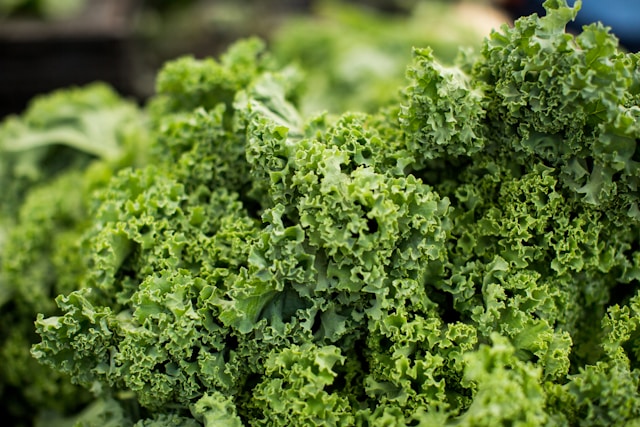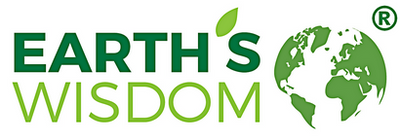Vitamin B12 Deficiency - Signs and Treatment
June 27, 2018
Are you taking a balanced meal containing meat, fish, eggs, poultry and dairy? Taking these foods in your meals is very important because they contain a very important vitamin, Vitamin B12. This vitamin is water-soluble and also called cobalamin. It plays an important role in the production of RBCs and DNA, and also in proper functioning of nervous system. But unfortunately Vitamin B12 deficiency is quite common, particularly in seniors. And the cause of deficiency is mainly lack of the vitamin in your diet or inability of your body to absorb it from food. So, today Earth’s Wisdom will touch this very important topic of how to protect yourself from vitamin B12 deficiency.
Symptoms
How will you identify that you are deficient in vitamin B12? Unfortunately the symptoms can take years to appear. Diagnosis is also complex. Sometimes vitamin B12 deficiency is mistaken for folate deficiency.
When levels of B12 drop, they cause folate levels to drop too. In such a case, if only folate deficiency is corrected, the underlying problem of B12 deficiency persists.
Pale or Jaundiced Skin
If your skin is looking abnormally pale or has a yellowish tinge on it and also on whites of eyes, you may be vitamin B12 deficient. This is because your red blood cell production is hampered due to lack of B12.
Vitamin B12 has a very important role to play in the production of DNA that is required to produce RBCs. Without it, instructions to build the cells remain incomplete and cells cannot divide. This gives rise to a type of anemia known as megaloblastic anemia wherein RBCs produced in bone marrow are big and fragile.
Being very big, these RBCs cannot pass out of your bone marrow to come into the circulation. Thus you don’t have enough RBCs circulating in your body and so, your skin looks pale.
Being fragile they also break down creating an excess bilirubin. This is a red or brown compound produced by liver when it breaks down old blood cells. Excess bilirubin offers your skin and eyes the yellow tinge.
Weakness and Fatigue
Next common symptoms of B12 deficiency are weakness and fatigue. Obviously because there are no enough RBCs in your body to transport oxygen across your body, you feel weak and fatigued. An autoimmune condition called pernicious anemia mainly causes this type of anemia in the elderly due to which an important protein known as intrinsic factor is not produced in enough amount. Intrinsic factor is necessary for preventing B12 deficiency because it binds with B12 in your gut and help its absorption.
Prickling Sensation
A more serous effect of B12 deficiency is nerve damage because B12 produces myelin sheath that surrounds nerves to protect and insulate them. Obviously when B12 is not enough in the body, nervous system cannot perform properly. This gives rise to a prickling feeling in hands and feet.
Other effects of B12 deficiency include glossitis i.e. inflamed tongue and mouth ulcers, breathlessness and dizziness (due to lack of oxygen), disturbed or blurred vision due to damage to optic nerve, mood changes, depression and dementia due to high levels of homocysteine resulted from low levels of B12, and a rarely occurring high temperature.
Treatment
In most people, B12 deficiency can be easily prevented or cured just by making sure you are taking a diet containing enough B12 which is found in all types of meats, eggs and dairy, and also products fortified with B12 such as some types of bread and plant-based milk.
So, if you are experiencing any of the above symptoms, take it as an alert and visit your doctor and start taking a balanced meal.
Conclusion
In conclusion, Vitamin B12 deficiency is a serious health condition that can cause a range of symptoms and long-term health problems if left untreated. Fortunately, there are several effective treatments available that can help restore B12 levels and prevent further damage to the body.
If you suspect that you may be deficient in Vitamin B12, it's important to seek medical attention and get a proper diagnosis. Some common symptoms of B12 deficiency include fatigue, weakness, pale skin, and difficulty concentrating, among others.
Once a diagnosis has been made, there are several treatment options available, including B12 injections, oral supplements, and dietary changes. Injections and supplements are typically the most effective treatments, as they deliver a high dose of B12 directly to the body, bypassing the digestive system.
In addition to treatment, it's important to make dietary changes that can help prevent future deficiencies. Foods that are rich in Vitamin B12 include meat, fish, and dairy products, as well as fortified breakfast cereals and nutritional yeast.
Overall, it's important to take Vitamin B12 deficiency seriously and seek prompt medical attention if you suspect that you may be deficient. With the right treatment and dietary changes, you can restore your B12 levels and prevent further health problems.
Leave a comment
Comments will be approved before showing up.
Also in Wisdom News

The Importance of Vitamin K2: Unlocking its Role in Health and Wellness
September 22, 2024

The Importance of Omega-3 Fatty Acids: A Comprehensive Review of Their Effects on the Body
August 02, 2024

The Benefits of Mindfulness Meditation for Mental Health
July 12, 2024
Disclaimer: These statements have not been evaluated by the FDA. These products are not intended to diagnose, treat, cure or prevent any disease.
© 2025 Earth's Wisdom®. All Rights Reserved.




